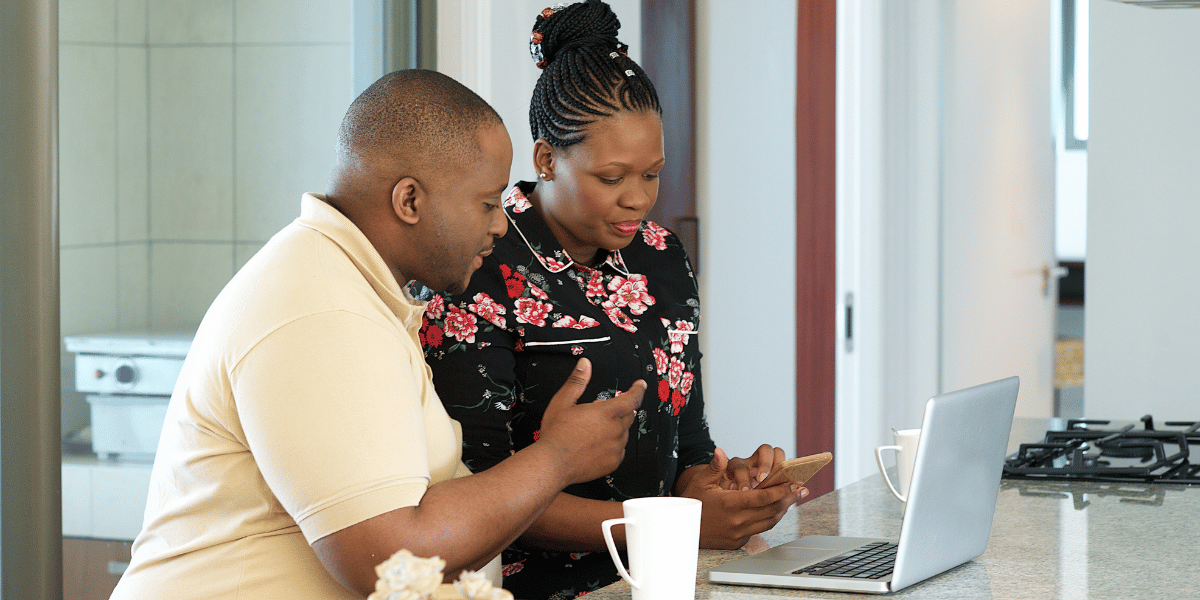How to Handle Unmet Money Expectations (Part 2)
This is the second part of a two-part series on money and expectations. See Part 1 for important tips on how to communicate in a fundamentally better way about expectations and values around money.
Money. Conflict. Those two words are paired a lot more often than most of us would like, right? Well, it doesn’t have to be that way! Let’s continue our case study of Amanda and Joseph and his infamous VR gaming set purchase that collided with her saving and timing goals. (If you didn’t catch Part 1, you’ll want to briefly read it to familiarize yourself with our case study.)
Here are the final three action steps, to help you turn money from being an opportunity for conflict into being an opportunity for connection.
Action #3: Work together to align your expectations.
In Part 1, we looked at ways to investigate the issue under the issue and specifically talk about those things. If they had done so, Amanda and Joseph might have ended up saying things like:
Her: “I didn’t realize how much this helps you decompress, or that you had been wanting this for months, or that you viewed it as a big part of our entertainment plan going forward.”
Him: “I didn’t realize you were concerned that I might get into a pattern of taking advantage of you financially, instead of standing on my own two feet and making it work.”
And once we do look at the issue under the issue, we can explain what matters most to each of us. For example:
Her: “I can see why you felt strongly about buying the VR set. And I love the idea of the game you bought for me. But just so you know, I really place more value on being able to go out to eat together without feeling like I always have to pay.”
Him: “I can see why you felt strongly about me saving. And I am already planning for the process of building up enough for the most important purchases ahead – and also to take you out to dinner rather than the other way around. But just so you know, I really value being able to make certain purchases when I have the money to do so.”
Perhaps Amanda and Joseph might conclude that – once they are married and are actually sharing money – there’s a way to do what matters to both of them. For example, they might decide to work together to build up two months’ worth of untouchable emergency savings (so she doesn’t feel stressed), and once that happens, they can relax and allow him the flexibility to purchase certain things when they have the cash flow (so he doesn’t feel deprived).
Action #4: Set aside two “buckets” of money so that each spouse can indulge their own expectations.
One of the most fascinating findings from the Thriving in Love & Money research was the importance of jointly designating a monthly amount that each spouse can use in whatever way they want, no questions asked. Couples who did that were far happier in their relationship.
In the case we’ve been discussing, this would give Joseph the flexibility to buy certain things when he wants to, and it would give Amanda the ability to pay off her car earlier, or stash extra away in an emergency savings account.
It would, in other words, give each of them the opportunity to indulge their own expectations, without getting hung up on the other person’s.
There is no “one right way” to manage money, which is why our money expectations are often so different. But because money gets at many issues of the heart – what we value, why we view competing priorities the way we do, what are our fears and dreams – it is a great opportunity for connection at a heart level. As long as we expect the differences and communicate about the matters of the heart, money can truly change to being a source of intimacy in our marriage.
Action #5: Maintain a team attitude.
While Amanda and Joseph aren’t yet married, they are headed in that direction. And when we say, “I do,” we become a team. We are still individuals with different backgrounds, spending habits, and our own “wants” – but our own “wants” can no longer rule the day. We have to counter our innate tendency to be self-serving and create a team mindset.
In our research for Thriving in Love & Money we heard from a lot of couples who had figured out that one great way to function as a team was to literally have a “huddle” on a regular basis – maybe a few minutes each week, or one evening a month – to discuss the time ahead and any money issues to resolve. Others shared the benefit of praying together around finances.
Still others emphasized that being a team means being willing to look at where we ourselves are not being a team player – for example, asking ourselves tough questions like, “Am I defending my discretionary purchases while being critical of my spouse’s?”
Ouch. I know.
But if we’re willing to work toward being a team in that way – and via the other steps outlined in last week’s blog and this one – we will almost certainly see our expectations changing. As a result, we’ll be far more likely to avoid preventable heartaches and be on the same page for the things that matter.
And that’s a better experience than any virtual reality game could ever deliver.
If you are interested in having Shaunti bring research-based strategies, practical wisdom and biblical principles to your next event, please contact Nicole Owens at [email protected].
On our podcast, I Wish You Could Hear This, Jeff and I offer proven steps to help you thrive in your life, faith and relationships. In other words, we’ll offer the practical help you’ve grown accustomed to right here in this blog space. You’ll take away specific steps that help you today. Listen, follow, and share with your friends on YouTube, Apple Podcasts, Spotify and other platforms.
Please note: This post may contain affiliate links. As an Amazon Associate we earn a small amount from qualifying purchases through these affiliate links. This doesn’t cost you anything, and helps us continue bringing you great content!







